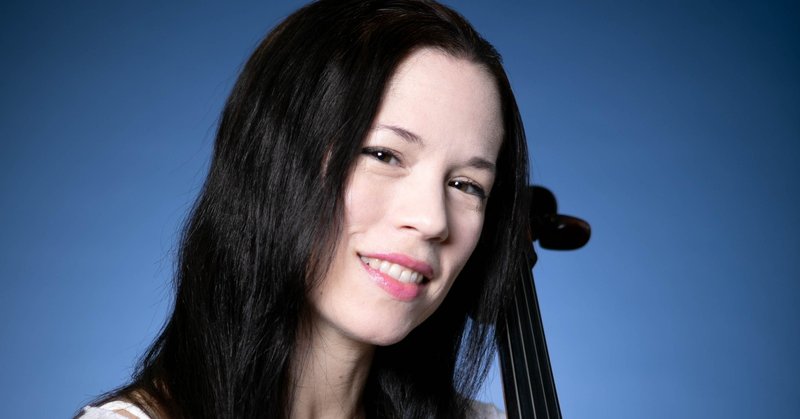
アイリス・レゲヴさんへ10の質問
アッセンブリッジ・ナゴヤの音声配信企画、「名フィルメンバーの対話で綴る2020ー演奏会空白のときー」にむけて、名古屋フィルハーモニー交響楽団のアイリス・レゲヴさんへ、アッセンブリッジ・ナゴヤから、インタビュー前に10の質問をし、それぞれに記入していただきました。
その質問シートをこちらの記事で日本語訳と共に公開いたします。
当日のインタビューや演奏の様子はこちらから
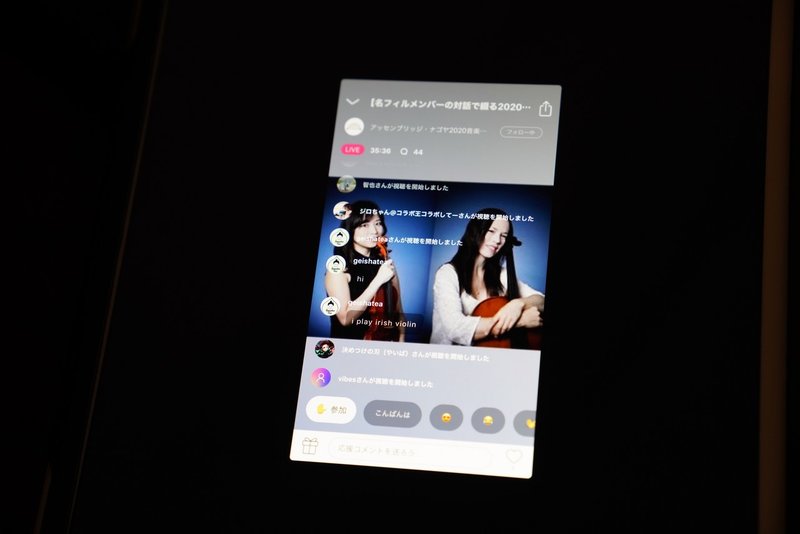
配信中の画面の様子
ー自粛期間中、毎日のようにしていたことや、やろうと決めていたことはありますか?
もしくは、新しく始めた趣味などあれば、教えてください。
Was there anything you did everyday or something you set as your daily routine during the “lockdown”? Or perhaps a new hobby you found?
Like everybody else, I started cooking more and baking during the lockdown. I was also reading many books, doing some exercise at home, and playing Bach solo cello suites.
(他の皆さんと同様に、自粛期間中はそれまで以上に料理やパンづくりをするようになりました。また本をたくさん読んだり、家で運動をしたり、バッハの無伴奏チェロ組曲を演奏したりしました。)
ー日常生活の中で美を感じる瞬間や、もの、ことなどあれば教えてください。
When in your daily life do you find beauty? What inspires you in your everyday moments?
Nature inspires me. Japan has 4 very clear seasons, and it’s beautiful to watch how they change. Other sources of inspiration for me are good books like Anna Karenina, by Tolstoy. Also I love watching classical ballet.
(自然は私に感動を与えてくれます。日本は明確な四季があり、季節の移り変わりはとても美しいです。他には、トルストイのアンナ・カレーニナのような良い本も、たくさんの感動をくれます。
また私は、クラシックバレエを見るのも大好きです。)
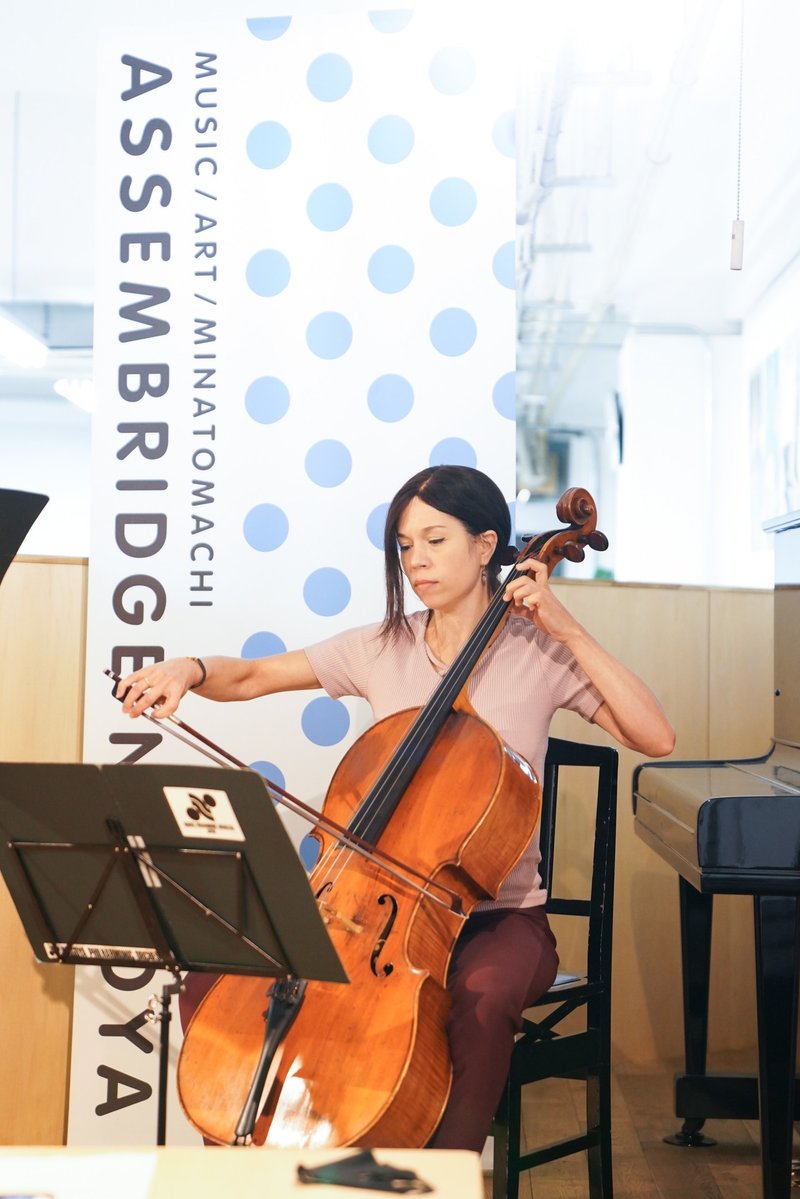
会場となったポットラックビルで演奏中のレゲヴさん。艶やかな音色からはインタビューでも語られた「うた」が聴こえてきました。
ー自粛期間中、よく聴いていた音楽や、読んだ本、オンラインのコンテンツで観たものなどで、印象に残るものがあれば教えてください。
Please list any memorable music, books or online contents you watched during the lockdown.
During the lockdown, I enjoyed reading the auto-biography by Michelle Obama, “Becoming”. I also love listening to opera singer Cecilia Bartoli singing Mozart, “The Marriage of Figaro”. I want to “sing” on my cello the way she sounds.
(自粛期間中、ミシェル・オバマ氏の自伝書「Becoming(邦題:マイ・ストーリー)」を興味深く読んでいました。またオペラ歌手のチェチーリア・バルトリが歌うモーツァルトの「フィガロの結婚」を聴くのが大好きで、彼女が奏でる音のように私もチェロで演奏したいと思っています。)
ー海外との繋がりがある方も多いかと思いますが、同じ演奏家で海外居住の方(オーケストラなど団体も含む)の活動を見聞きされたりして、印象に残っていることがあれば教えてください。
Many of you have international connections. Were there any activities of your international peers or orchestras you found impressive or were inspired during the lockdown?
Yes. My friends in Israel played a concert on the terrace of their home, and the people opened their windows to listen. This was in Tel Aviv, during their lockdown. My fiends are members of the Israel Philharmonic orchestra.
(はい。テルアビブがロックダウン中のことですが、イスラエルフィルハーモニー交響楽団のメンバーである私の友人が自宅のテラスでコンサートを行い、人々が窓を開けてそれを聴いたということがありました。)
ーオンラインの活用等「新しい発表の形態」がニューノーマルとして動き出していますが、自粛期間中に、何か新しい音楽活動で個人的にやってみたこと(ご自身で、あるいはご友人らと協働で)、今後やってみたいことはありますか?
New styles and formats of concerts and music expressions are vigorously explored under the “new normal”, making the most of the internet sphere and online tools for example. Have you tried anything new during the lockdown to keep on playing, or do you plan to experiment something, either personally or with peers?
In February, we were preparing to play cello quartets with my Mei-phil colleagues in the lobby concerts. We already rehearsed and were ready to play 3 jazz pieces for 4 cellos, but it got canceled because of the coronavirus. The music was “stuck in my ear” and didn’t leave me, even while I was sleeping. So I decided I must find a way to play it no matter what. I found an application called ACAPELLA where I was able to record my sound 4 times, and join the 4 recordings of myself, creating a virtual cello quartet.
(2月に、ロビーコンサートで名フィルの同僚とチェロ4重奏をするための準備を行っていました。リハーサルも済ませ、チェロの4重奏のためにジャズ曲も3曲用意していましたが、新型コロナウィルスの影響で中止になりました。眠っているときでさえ音楽が耳から離れなくて、どんな方法ででもこれを演奏する方法を見つけようと決心しました。「アカペラ」というアプリを見つけ、自身で4重奏を録音し、音源を組み合わせてバーチャルのチェロ4重奏を創り上げることが出来ました。)
コチラからご視聴いただけます!↓
ー自粛期間中、自宅等での練習のみに限定されざるを得ず、ホール等大きな空間での演奏ができない期間が長くなったことで、身体的・内面的な感覚の変化はありましたか?あった場合はどんなことでしょうか。
During the lockdown, you could not play in the concert halls for a long time and could only practice at home or small private spaces. Has this affected you physically and/or mentally? If so, what were the changes you experienced?
During the lockdown when I practiced my cello at home, I was thinking about my neighbors. I didn’t want to disturb them because I was very aware that many of them are working from home during lockdown. So I tried to play very soft. But mostly, I missed playing with other people, creating harmony together. On cello by itself is a bit lonely…
(自粛期間中は自宅でチェロの練習をしていましたが、ご近所さんのことを考えていました。というのも、自粛期間中、多くの人が自宅からリモートで仕事をされていることを知っていたので、そうした人の邪魔はしたくなかったからです。ですので、とてもソフトに演奏するようにしていました。しかし他の方と一緒に演奏すること、一緒にハーモニーを作ることがとても恋しかったです。チェロ1人では、少し寂しいですね。)
ー長い自粛期間が明け、演奏会が再開したとき、どのようなお気持ち(感覚)でしたか?もしくは、何かこれまでと音楽やコンサートに対して違う考えになった等、気持ちの変化はありましたか?
How did you feel / what was your sentiment on your first post-lockdown stage? Did the lockdown period and experience affect your feelings and thoughts towards music and concerts?
Yes. Now I appreciate it more, being able to play music on stage with my colleagues, in front of an audience. Every concert brings great joy. I am very thankful to the audience, who make an effort to come hear concerts.
(はい。今は同僚と共にステージの上で、お客さんを前に音楽を演奏することが出来ることに大変感謝しています。大きな喜びをコンサートはもたらしてくれます。私はコンサートを聴くため会場にお越し下さる観客の皆さんに大変感謝しています。)
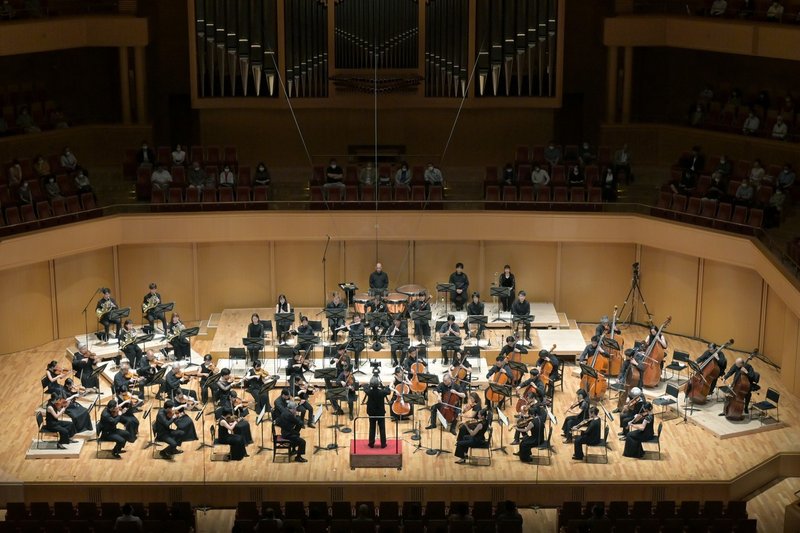
7月10日の名フィル演奏会より 撮影: 中川幸作
ーアート同様、音楽も「不要不急」といわれましたが、そう言われることについて、どう思いましたか?
Music was, just as art, classified as “non-urgent, non-essential” activity during the lockdown. What were your thoughts on that?
Music is like food for the heart and for the soul. It can comfort us, unite us , and give us hope.
(音楽は心や魂にとっての食事のようなものです。音楽は私たちに元気を与え、団結させ、そして希望を与えてくれます。)
ーこちらもまたアート同様、「敷居が高い」と言われがちなクラシック音楽ですが、そのように感じる方への、音楽との距離の縮め方、また楽しみ方などアドバイスがあれば教えてください。
Again, just as visual art, classical music is often considered as “high-art” which is difficult to approach. What is your prescription for those who feel intimidated in such a way to come closer to the world of music?
For me, music is not about what you THINK, it’s more about what you FEEL. Even young children can enjoy classical music, without knowing about it before. Just open your heart and enjoy! Some people like to learn a lot of information about the pieces, but the real beauty of the music cannot be put into words anyway, so don’t worry.
(私にとって音楽は考えるものではなく、もっと心で感じるものです。幼い子どもでさえ、例えそれについて事前に何も知らなくても、クラシック音楽を楽しむことが出来ます。ただ心を開き、楽しむだけです!一部の方は、曲についてたくさんのことを学ぶことが好きな人もいますが、音楽の本当のうつくしさは言葉に置き換えられるものではありませんので、怖がる必要はありません。)
ー 音楽の持つ力にはどのようなものがあるとお考えか、お聞かせください。
What would you say is the power of music?
It’s the power to express human emotions (such as love, sorrow, joy, anger, surprise, jealousy, etc.) without words, and to connect people. Whether you are French or Japanese, or Mexican- we all share the same human experiences and the same feelings. We can all enjoy the beauty of music by Mozart, Bach, Beethoven. It gives us hope and inspiration.
(音楽は人の感情(愛や悲しみ、喜び、怒り、驚き、嫉妬など)を言葉を用いずに表現する力であり、人々をつなげるものです。あなたがフランス人であろうと、日本人であろうと、メキシコ人であろうと、私たちは同じ人間としての経験や感情を共有することが出来ます。私たちはモーツァルト、バッハ、ベートーベンなどの音楽のすばらしさを楽しむことが出来ます。そして音楽は希望と感動を与えてくれます。)
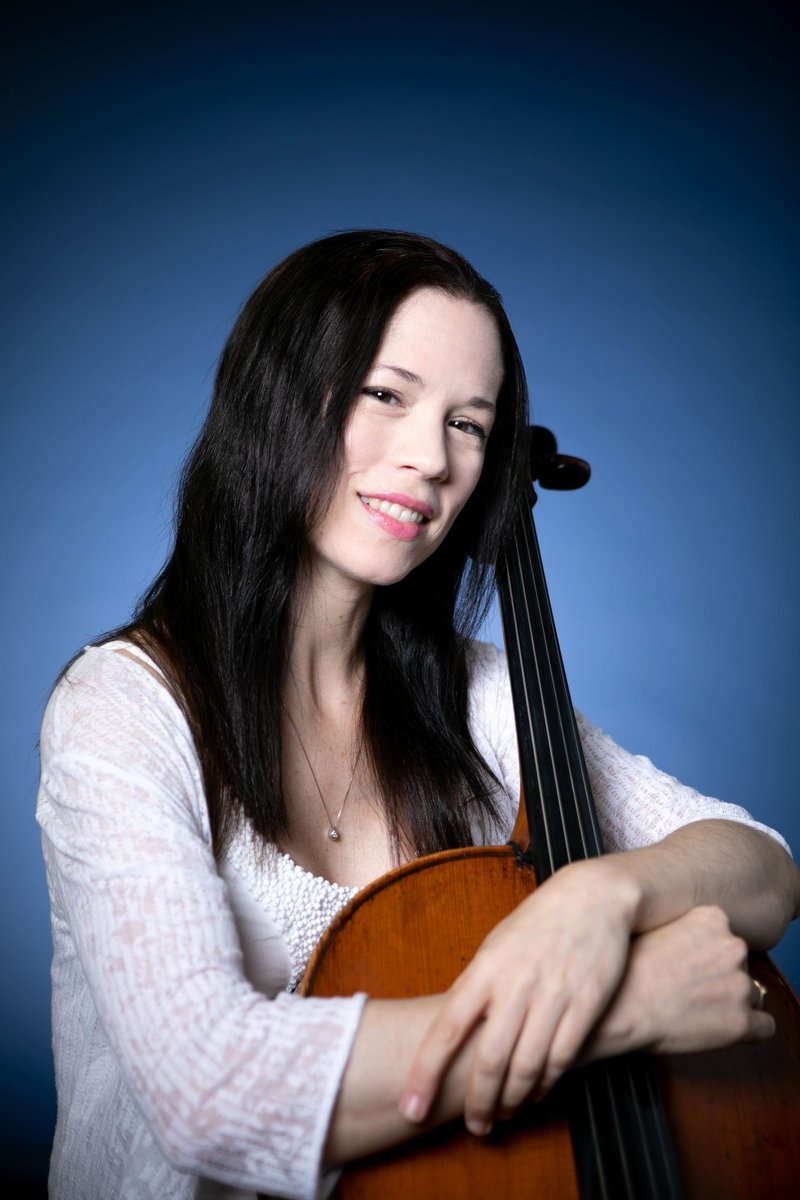
Iris Regev
アメリカ合衆国カリフォルニア州ロスアンジェルス出身。
クリーブランド音楽院を経て、ジュリアード音楽院(音楽学士)を卒業。イスラエルフィルハーモニーオーケストラ、イスラエルカメラータオーケストラ、バンコクシンフォニーオーケストラとソリストとして共演。室内楽では、カーネギーホールでのトリオコンサートに出演する他、マイアミではピンカス・ズーカーマンと弦楽五重奏を共演している。
これまでに、ジュピターシンフォニーオーケストラ、サンパウロステートオーケストラ(副首席奏者)、リオデジャネイロステートオーケストラ(副首席奏者)、イスラエルフィルハーモニーオーケストラに在籍。2018年より、名古屋フィルハーモニー交響楽団チェロ奏者。
この記事が気に入ったらサポートをしてみませんか?
